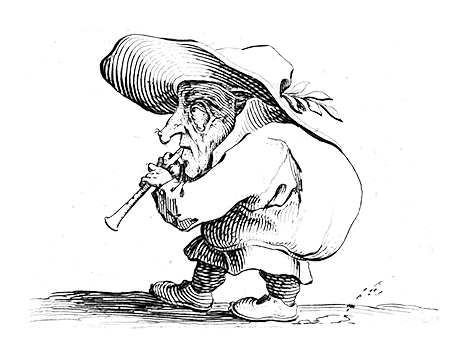Bookshelf
This is a starting point for book recommendations that I think probably have the broadest appeal. In general, I think recommendations are more valuable if they are more personal, and for that matter a recommendation of 2 books is worth more than a recommendation of 100. So I will try to keep this list as small as possible, which I hope does not make it so mainstream that it is uninteresting.
As always, the most valuable book is the one you read twice.
Literature
Literature is the most pleasurable and the most useful of all writing, it will teach you more about human nature than any textbook. It is also the most difficult to make general recommendations, so I will only mention some favorite authors and a few of their works.
Bohumil Hrabal - I Served the King of England had a profound impact on me when I first read it. Too Loud a Solitude (which apparently on amazon I have purchased four times) and Closely Watched Trains are also excellent short works.
Italo Calvino - Invisible Cities is his most popular work and is good but If on a Winter’s Night a Traveler is his best, however it is even better if you have read other Calvino first. The short stories in Numbers in the Dark are very good.
Vladimir Nabokov - Pnin is his most accessible work. His collection of short Stories is one of my favorite collections. His best work is Ada, or Ardor.
Gabriel Garcia Marquez - Almost everything ever published by Marquez is excellent, including his autobiography. It is easy to find his most popular works but his best work is probably No One Writes to the Colonel.
Others come to mind but they are not for everyone. I love Stefan Zweig’s fiction but I suspect many would find him stuffy. The Post-Office Girl might be his best. Sigizmund Krzhizhanovsky’s Memories of the Future is darkly imaginative but certainly not for everyone. At the other end of the hallway, Haruki Murakami’s dreamlike worlds are oddly all comfortably similar to each other: I think Wind-Up Bird Chronicle and Kafka on the Shore are his best, but others have grown on me over time. Fernando Pessoa’s Book of Disquiet is a masterpiece, but I don’t expect everyone to agree.
History
The first three books taken together clear up some considerable blind spots in the average person’s view of history. For re-reading, the audiobook versions of all three are quite good.
Seeing Like a State: How Certain Schemes to Improve the Human Condition Have Failed by James Scott
Against the Grain: A Deep History of the Earliest States by James Scott
The Origins of Political Order: From Prehuman Times to the French Revolution by Francis Fukuyama - Maybe one of the most underrated books of the last ten years.
An American Childhood by Annie Dillard is the retelling of her own childhood growing up in Pittsburgh in the 1950s. Dillard is an excellent writer with lots of amusing anecdotes, but the book tells a second story as a history book. Lots of what gets mentioned is absent from today’s world, in a way that should give us pause.
Sexual Personae - Despite the title it might be better thought of as an opinionated overview of the history of Western art. Not for everyone, but quite fun.
The Merchant of Prato: Francesco di Marco Datini, 1335-1410 by Iris Origo - Read to better understand the extent of trade and globalization (which it partly changed my view on).
Reflections on the Revolution in France by Edmund Burke - Worth reading for a number of reasons, the simplest being that few people have read anything about the French Revolution at all.
Biographies
In some sense these are history, and they often have more detail than most history books.
Napoleon: A Life by Andrew Roberts - All the brave people are long dead.
Walt Disney: The Triumph of the American Imagination by Neal Gabler - Mst companies would never accept someone like Disney as CEO today, for a number of reasons. It is difficult to appreciate Disney’s differences in summary, so the biography is well worth it.
The Pigeon Tunnel: Stories from My Life by John le Carré - One of the best audiobook performances, as it is read by the author, who has all the emotion (and accents) as he recounts his life stories. It is probably more worthwhile if you’ve read a few of his other books, at a minimum read The Spy Who Came in From The Cold and watch Tinker Tailor Soldier Spy.
Design
The Timeless Way of Building by Christopher Alexander
Get Your House Right by Marianne Cusato
Drawing for architecture by Leon Krier
For my discussion of these books you should read my series of articles: Designing a New Old Home.
Food
An Everlasting Meal: Cooking with Economy and Grace by Tamar Adler - Shreeda called this “A Pattern Language for food.” A book about how to think about cooking and eating, I think it is the best “cook book” that exists.
The Measure of Her Powers: An M. F. K. Fisher Reader - MFK Fisher is perhaps the greatest American food writer of all time. She has the perfect evocative imagination needed to speak about food. The audiobook is very good.
